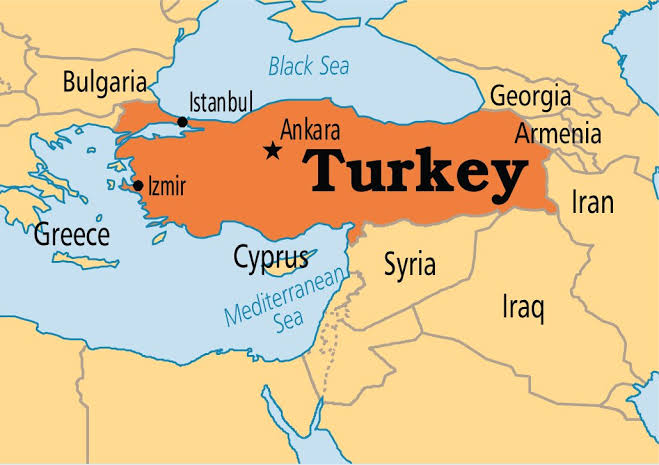Free Courses Sale ends Soon, Get It Now


Free Courses Sale ends Soon, Get It Now



Disclaimer: Copyright infringement not intended.
Context
Turkey:
Turkey has well-defined natural borders with its eight neighbours:

Background of India-Turkey Relations
India Turkey Relations
Political relations
Economic & Commercial Relations
Cultural Relations
Indian diaspora
Bone of contention of relations between two countries
Significance of Turkey for India
The strategic location of Turkey to provide connectivity with Central Asia through the Caucasus provide many advantages for India.
Conclusion
Sources:
MEA website and https://www.mea.gov.in/Portal/ForeignRelation/Turkey_August_2017.pdf
|
PRACTICE QUESTION Q. Which of the following countries share the border with Turkey?
Choose the correct code:
Answer: 4 |
© 2024 iasgyan. All right reserved